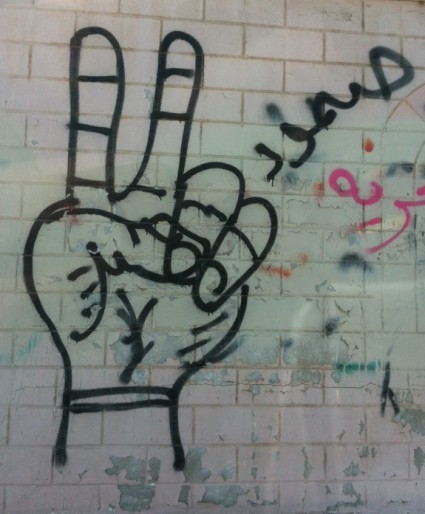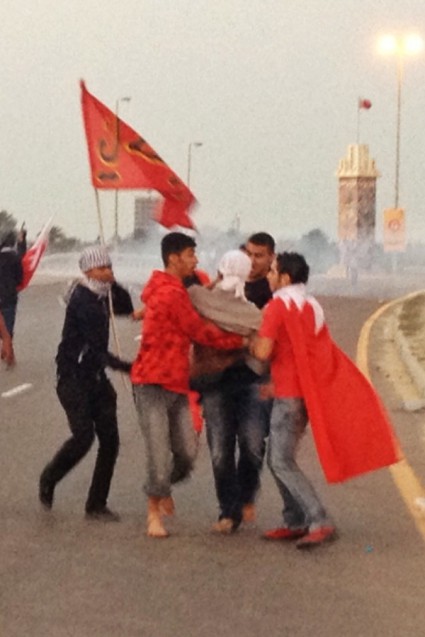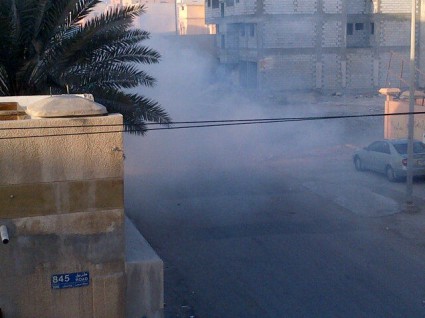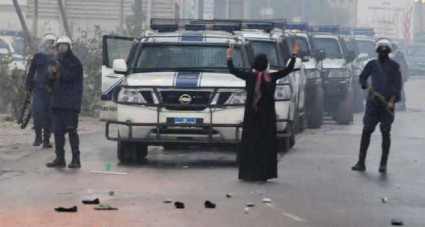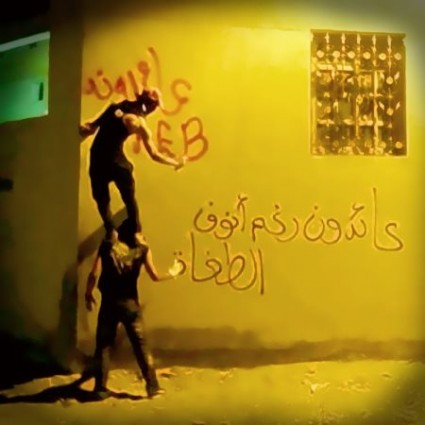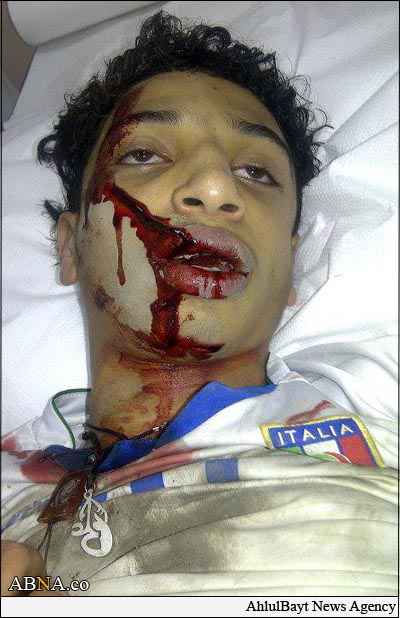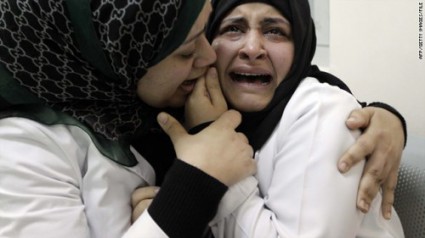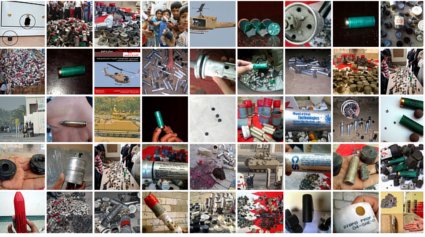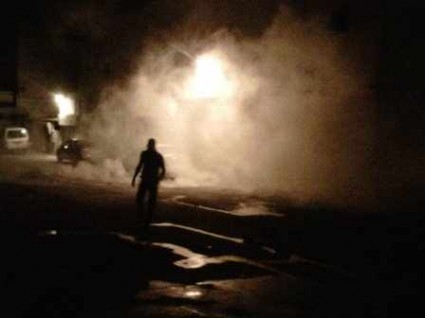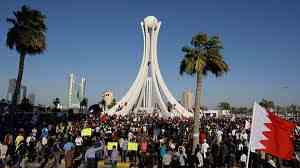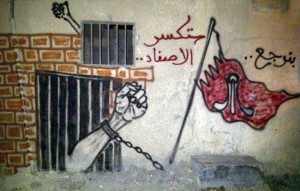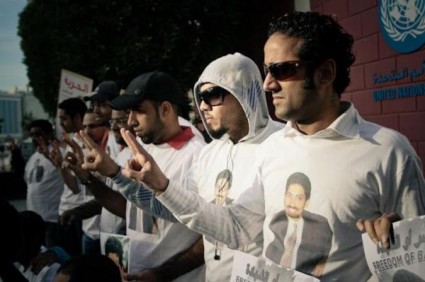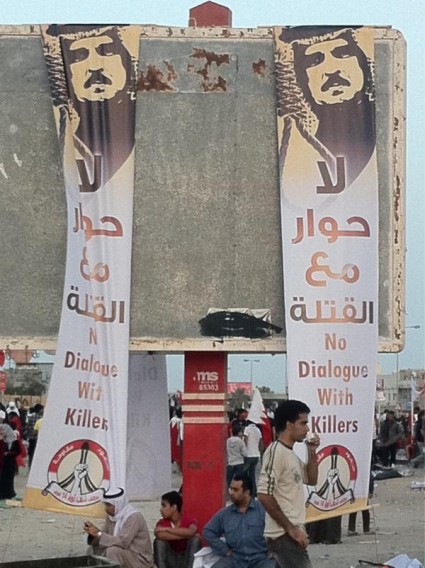The Corrupt have no ear to hear but the Wise hear a Youthful Revolution in the making and its Global
Youth in Revolt: The Plague of State-Sponsored Violence
14 March, 2012 – Henry A. Giroux – Truthout
Young people are demonstrating all over the world against a variety of issues ranging from economic injustice and massive inequality to drastic cuts in education and public services. At the moment, these demonstrations are being met with state-sanctioned violence and insults in the mainstream media rather than with informed dialogue, critical engagement and reformed policies. In the United States, the state monopoly on the use of violence has intensified since the 1980s and, in the process, has been increasingly directed against young people, poor minorities, immigrants and increasingly women.
As the welfare state is hollowed out, a culture of compassion is replaced by a culture of violence, cruelty and disposability. Collective insurance policies and social protections have given way to the forces of economic deregulation, the transformation of the welfare state into punitive workfare programs, the privatization of public goods and an appeal to individual responsibility as a substitute for civic responsibility. Under the notion that unregulated market-driven values and relations should shape every domain of human life, the business model of governance has eviscerated any viable notion of social responsibility while furthering the criminalization of social problems and cut backs in basic social services, especially for the poor, young people and the elderly.(1)
Within the existing neoliberal historical conjuncture, there is a merging of violence and governance and the systemic disinvestment in and breakdown of institutions and public spheres, which have provided the minimal conditions for democracy. …more
March 14, 2012 No Comments
Freedom with Justice for Bahrain
March 14, 2012 No Comments
They Voted No on Reform
March 14, 2012 No Comments
How many must fall through the generations to know reform is a power game of the elite?
March 14, 2012 No Comments
Another Restless Night in Sitra
March 14, 2012 No Comments
Courage in the Face of Adversity – Abdulhadi al-Khawaja
March 14, 2012 No Comments
Sitra Youth Creative Arts Program
March 14, 2012 No Comments
Has Reform Stopped this through the Generations
March 14, 2012 No Comments
Ask them about Reform
March 14, 2012 No Comments
Less-than-lethal? Riot Control? how come 75+ dead and 1000s injured while in their homes?
March 14, 2012 No Comments
Protection for Bahrain Villages living in a cloud of CS Gas for the last Year!
March 14, 2012 No Comments
Never forgotten, Never forsaken
March 14, 2012 No Comments
Bahrain Political Prisoners in Solidarity with Alkhawaja
March 14, 2012 No Comments
Freedom for AlKhawaja, Free for all Political Detainees!
March 14, 2012 No Comments
No Dialogue, No to Reformist Lies
March 14, 2012 No Comments
I am Bahrain, Liberty is my Future
March 14, 2012 No Comments
Western Public Relations Groups lauch media blitz attempting to Isolate Revolutionary Bahrain
Bahrain opposition may be losing touch with the youth
14 March, 2012 – Chicago Tribune
MANAMA (Reuters) – Bahrain’s main opposition movement Wefaq is making overtures to the monarchy on how to pursue democratic reforms but its efforts may be undermined by waning support from youth who seek more revolutionary change.
Three members of Wefaq, which dominates Shi’ite politics and has taken almost half the seats in parliament in past elections, recently met a prominent member of the ruling Sunni Al Khalifa family to discuss a way forward after a year of unrest following the bloody breakup of protests at the Pearl Roundabout.
“The country is paralyzed now,” Abduljalil Khalil, one of the Wefaq members involved, said to justify Wefaq’s move. “The country is in big trouble if you can’t move your security forces from the roundabout.”
The traffic intersection has remained under heavy guard and closed. The economy in what was a bustling banking and tourism centre is stagnant, and visa restrictions have been placed on tourists, journalists and international rights groups.
Washington, for whom Bahrain’s stability is important given that it bases its Fifth Fleet in Manama across the Gulf from adversary Iran, has often urged the government to engage Wefaq.
But at this stage the point may be moot, as the monarchy now faces an array of hardline political forces – Shi’ite Islamist and secular – some of whom have said openly that they favor ditching the monarchy and replacing it with an republic.
Though most of these groups’ leaders are in prison or abroad, youth and rights activists have used new media to organize street opposition, deploying the language of revolution. And some loyalists accuse Wefaq of exploiting angry youth for its own political gain.
“We won’t let anyone go and speak in the name of the people,” said Hisham Sabbagh of Amal, a legal Islamist party.
STREET RADICALS
An underground group calling themselves the February 14 Youth Coalition – after the date when the uprising began last year – claims to speak in the name of disaffected Shi’ite youth throughout the country, announcing protests and reporting on clashes in Shi’ite districts via Twitter and Facebook.
Recently they have used alarming, sectarian phrases such as “holy petrol bombs”, “martyrdom ambushes” and “Haidar attacks”, a reference to the first Shi’ite Imam, Ali, though they do not veer into the realm of insults that some government loyalists employ against Shi’ites.
Though youths will go to Wefaq’s government-approved rallies, they ignore calls by its leader Sheikh Ali Salman to avoid slipping into violent engagement with riot police.
Activists say the heavy use of tear gas, bird shot and other crowd control tactics has caused more than 25 deaths and hundreds of injuries since last June, numbers that the government disputes.
“We respect the opposition but everyone has to choose their own path. Ali Salman doesn’t really know the situation we live in,” one teenager said while preparing bottles to throw at police in Jidhafs, an impoverished flashpoint district.
Nabeel Rajab, the founder of the Bahrain Centre for Human Rights, poses another challenge.
Rajab, who has risen to prominence in the past year with one of the highest number of Twitter followers in the Arab world at 121,000, was quick to tweet words of rebuke when the news of the talks with the government emerged, describing the court minister who met Wefaq as part of the problem, not its solution.
For many, Rajab has acquired a revolutionary allure.
“We all love him. He’s daring. He knows how to talk and he doesn’t just tell people to do something, he actually does it himself,” said a smitten receptionist after he turned up at a commercial building last month asking for directions.
Like the February 14 activists, Rajab refers to the security forces as “mercenaries”, because of the notable number of Pakistani and other foreign hires – language that Wefaq avoids. …more
March 14, 2012 No Comments
Abuse of Judical Power and Murderous Crackdown has become daily routine in Bahrain
University students sentenced to 15 years imprisonment and ongoing sham trials
14 March, 2012 – Bahrain Center for Human Rights
The Bahrain Center for Human Rights expresses its grave concern over the continuous human rights violations against university students in Bahrain. A year past the start of the revolution, university students are still being subjected to injustice, unfair trials, arrests and torture.
On February 14 2011, Bahraini youth started to demand democracy and freedom from the oppressive Al Khalifa regime. Most of these youth were targeted even before the declaration of Martial Law in March, through a government-sponsored thug attack of the pro-democracy students at the University of Bahrain (UOB) during a planned protest which took place on March 13 2011. Following the state of emergency, the government targeted students in a fierce crackdown; more than 500 were expelled, many were arrested, tortured and put through sham trials. At least 6 UOB students were sentenced to 15 years imprisonment in an unfair trial lacking evidence.
Human chain formed by male students on 13 March 2011 to protect their female classmate from being attacked by government- sponsored thugs (Dr. Mike Diboll blog[1])
As a former professor at the University of Bahrain who was present at the time of the thug attack on March 13, Dr. Diboll recalls, they were “carrying blunt or sharp-edged weapons including axes, swords, golf clubs, iron bars, heavy chains, and baseball bats.” [2] Students were violently attacked without any protection from university security nor police forces, who only interfered when the attack was over. On that day at least 80 students were wounded and transferred to the nearby health center, although the majority was suffering from suffocation due to teargas. However, there were a few serious injuries. Mohammed Abdulmahdi, a 19 year old Applied Studies student in UOB, was hit on the head with a sharp weapon. It caused him to go into coma for around 100 days. When he woke up, he lost his ability to speak[3].
…more
March 14, 2012 No Comments
Bahrain Regime and Spin Masters use BICI report to bound scope of abuse and accountaility
Bahrain to Start Process to Compensate Protest Victims
By Donna Abu-Nasr – 14 March, 2012 – Bloomberg News
Bahrain’s Justice Ministry will start receiving on March 18 civil settlement applications to compensate victims of violence from last year’s mass protests.
The ministry set up the civil settlement initiative in line with recommendations from an independent international commission that investigated possible human rights abuses during the February-March 2011 protests. At least 35 people were killed during the rallies and an ensuing crackdown through April last year, the commission has said.
The initiative “does not annul the victims’ right to pursue legal settlement,” the state-run Information Affairs Authority said today in an e-mailed statement, citing a ministry official. “The initiative’s beneficiaries include families of deceased victims, physical injuries or abuse, along with other cases seen fit for settlement as per the circumstances of each case.”
Mass protests led by Bahrain’s Shiite majority broke out a year ago demanding democracy and equal rights from the Sunni monarchy, leading to a crackdown by security forces in which troops from neighboring Saudi Arabia, also ruled by Sunnis, were called in to help. Tensions in the island nation have simmered in Shiite areas throughout the past year. …more
March 14, 2012 No Comments
Afghanistan where empires die, Syria where empires anguish in hell – Perpetual War and Unquenchable Greed
Americans for Permanent War: Target Syria
14 March, 2012 – Huffington Post – Doug Bandow
Syrian President Bashar al-Assad and his family have turned his government into an essentially criminal enterprise. For more than a year Syrians have been attempting to overthrow the system.
By some estimates 7500 people have died. Defections from the military have led to creation of a small “Free Syrian Army.” Regime opponents also have turned to terrorism. With no resolution is in sight, the country is sliding toward civil war. Like King Louis XIV President Assad might say, “apres moi, le deluge.”
In America the usual suspects have begun beating the war drums. Senators John McCain and Lindsey Graham urged arming the Syrian opposition. More recently McCain called for air strikes against Syria and berated the military for its caution in “standing on the sidelines.” Similarly, the Wall Street Journal editorial page urged establishment of a no-fly zone in Syria, waving aside all opposition.
Others have taken up the cry. For example, Matthew Brodsky of the Jewish Policy Center urged military intervention in order to bring about “an end to the violence, the fall of the Assad regime and the creation of conditions for a stable democratic system.” Roger Cohen of the New York Times called for arming the Syrian opposition and establishing “a rough equality of forces.” Steven A. Cook of the Council on Foreign Relations endorsed military action so as not to leave “Syrians to their fate.” Former Obama aide Anne-Marie Slaughter suggested protecting “civilians through buffer zones and humanitarian cordons around specific cities, perhaps accompanied by airstrikes against Syrian army tanks moving against those cities.”
However, mere possession of the world’s most powerful military does not mean that it should be used irrespective of interests, circumstances, and consequences. Observed Marc Lynch on Foreign Policy online, “Risky, costly foreign policy decisions can not simply be taken to express moral outrage.”
The Journal grandly declared that “the U.S. has a strategic interest in Syria’s future,” but where is that not the case? A gaggle of neoconservative analysts wrote an open letter asserting that “The Assad regime poses a grave threat to national security interests of the United States,” but what interests are those?
Syrian support for Hamas and Hezbollah is a problem for Israel and Lebanon, not America. Damascus is allied with Iran, but that relationship is inconvenient, not threatening, to the U.S. Assad’s collapse would weaken Iran, but making Tehran feel more encircled would increase its incentive to pursue nuclear weapons.
Cohen desires “payback” for Syria “allowing al-Qaeda fighters to transit Syria to Iraq.” However, the Iraq invasion put U.S. troops on Syria’s border with talk in Washington of enforcing regime change in Damascus. The Assad regime responded rather as Washington had by supporting armed insurgents in Cuba, Afghanistan, and Nicaragua. The U.S. might have claimed a casus belli at the time, but not now, months after leaving.
Humanitarian instincts urge action. But war is no delicate tool for sculpting new societies. War means killing and destroying. The consequences usually are far worse than expected — remember Iraq’s famous “cakewalk.” Even the “best” American interventions are not particularly good, like Bosnia, Haiti, Kosovo, Libya, and Somalia, which left ethnic cleansing, violence, instability, and terrorism in their wake. …more
March 14, 2012 No Comments
Panetta Popularity with Troops no esta bueno!
Marines disarmed for Leon Panetta speech
By TIM MAK – 14 March, 2012 – Politico
Hundreds of U.S. Marines were suddenly told Wednesday to leave and return unarmed to a venue where Secretary of Defense Leon Panetta was scheduled to speak, according to reports — an unusual move that illustrates the military’s heightened security concerns.
Typically, American forces in Afghanistan have kept hold of their weapons when Panetta addressed them.
But on Wednesday, about 200 Marines were told to take their weapons outside of the large tent at Camp Leatherneck where Panetta spoke and to leave them there, while Afghan troops already were unarmed, as is customary for these events, reports The Associated Press.
The commander on the scene, Sgt. Maj. Brandon Hall, said he was acting on orders from highers-up.
“Something has come to light,” Hall told the troops, according to the wire service. “I was told to get the weapons out.”
“All I know is, I was told to get the weapons out,” he told The New York Times. “Somebody got itchy, that’s all I’ve got to say. Somebody got itchy; we just adjust.”
American officials later said that the order came from the top commander in Helmand province, Maj. Gen. Mark Gurganus.
“You’ve got one of the most important people in the world in the room,” he told the newspaper, insisting that the order had nothing to do with the Sunday’s incident in which an American staff sergeant went door to door in Afghan villages, killing 16.
“This is not a big deal,” Gurganus added.
…source
March 14, 2012 No Comments
Pssst, King Hamad – they won’t go away until you do
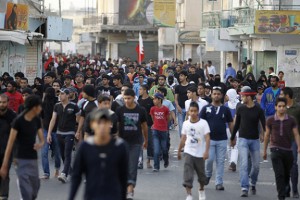
Hundreds of anti-government protesters walk from local streets towards the main highway in the village of Diraz west of Manama, March 13, 2012. Demonstrators took to streets after a protester, Fadel Mirza, died from a head injury caused by a tear-gas canister fired during a March 10 clash with riot police. …source
March 14, 2012 No Comments
The March to War in Syria unreality and the Western Narrative
How One-Sided Reporting is Facilitating Escalation – Six Ways the Media Has Misreported Syria
by AFSHIN MEHRPOUYA – 14 March, 2012 – Counter Punch
As in the case of Libya, from NY Times to Fox News, from Guardian to National Post and from Le Monde to Le Figaro, the Western mainstream media’s coverage of the Syrian conflict has been mostly simplistic and black & white with a Hollywoodian good (opposition) and evil (Syrian government) story. The basic storyline reported is: “The dictatorial Syrian government is torturing and killing Syrian protestors and civilians including women and children and that the Western counties and the Arab League want to protect these Syrian civilians”. These outlets use any information that supports their stance regardless of its source and quality, and dismiss or ignore any information that brings it to question.
The bloody suppression of protestors by the Syrian government and also instability resulting from the armed insurgency aggravated by a complex set of foreign forces, each with its own set of vested interests, have resulted in significant suffering for the people of Syria. Western media’s unquestioning, consensual, biased and melodramatic coverage of the Syrian events risks moving this conflict to a full blown war with grave consequences for the Syrian people and the region.
Here are the six ways that the Western media, across the board, have been uncritical and misleading in their coverage of the Syrian conflict:
1. What do the majority of Syrians want?
In the mainstream Western media coverage, there is an implicit assumption rarely questioned that the majority of the Syrians support the armed insurgency and that they want immediate departure of Bashar Assad. However, the only opinion poll that has been carried out by the Qatar based YouGovSiraj, since the start of the conflict claims that about 55%[1] of Syrians do not want immediate departure of Assad. The methodology for this poll is not robust. In addition, this stance might be not due to support for Assad rather, because the Syrian people are afraid of instability and civil war or because some believe in the reform intentions of Assad and still others because they might be benefiting from the existing regime. The 89% backing of the new Syrian constitution in the recent referendum with a turnout of 57% was also dismissed because of the ongoing violence on the ground and lack of independent supervision on the referendum[2].
Nonetheless, given the West’s backing of the Syrian opposition is based on the “will of the Syrian people”, for the media it is essential to expose and debate such polls and try to establish what the majority of the Syrians want before adopting a position on behalf of the Syrian people.
2. Is the Syrian National Council (SNC) and the militarized insurgency representative of the Syrian opposition?
The opposition is primarily represented by Syrian National Council (SNC) headed by a Syrian expatriate professor, Burhan Ghalioun who is based in Paris[3]. This organization which is run mostly by expatriates has been demanding foreign intervention in Syria and it rejects any sort of dialog with the Syrian government. Several independent media outlets and other Syrian opposition groups[4] have questioned SNC’s lack of transparency about its members, funding and foreign links and whether it is a legitimate representative of the Syrian opposition[5][6]. Another organization claiming to represent the opposition is the Syrian Opposition Coordination body operated from inside Syria which is against foreign intervention and is for a dialog-based solution after an end is put to the violence and the political prisoners are freed. In addition, several militarized groups operate inside Syria such as Free Syrian Army who have been engaged in an armed conflict with the Syrian army and also have been attacking government buildings and other assets. These militia are reported to be a mix of deserting soldiers, foreign mercenaries and armed civilians[7] and they are armed by cross border smuggled arms allegedly funded/provided by foreign governments including those of Saudi Arabia[8], Qatar[9]. …more
March 14, 2012 No Comments
Bahrain Nursing Association: Saudi Invaders must leave!
Bahrain Nursing Association demands end to Saudi invasion
14 March, 2012 – Shia Post
Bahrain’s Nursing Association has begun a week of resistance against the Saudi invasion of the country on the first anniversary of the arrival of KSA troops to help Manama in its brutal crackdown on protests.
Secretary of the Association of Nursing Ebrahim al-Dimstani told Al Alam television on Wednesday that activities planned for ”Resistance week against Saudi invasion” include holding nationwide protest rallies and expressing solidarity with the victims of the Saudi-backed regime crackdown.
According to al-Dimstani, the anti-Saudi invasion week began on Monday, two days ahead of the first anniversary of the Saudi invasion.
Meanwhile, Bahrain’s 14 February Coalition has called for large anti-government demonstrations to be held on March 15 to protest against Saudi Arabia’s military intervention in Bahrain.
On March 14, 2011, Saudi troops entered Bahrain to assist the Manama government in its quelling peaceful popular protests in the Persian Gulf Island.
Bahrainis have been holding anti-government demonstrations since mid-February 2011, calling on the US-backed Al Khalifa family to leave power.
According to local sources, scores of people have been killed and hundreds have been arrested in the Saudi-backed regime crackdown. ..source
March 14, 2012 No Comments
Obama continues to escalate US trangression on Sovereign Nation Rights will others pursue Diplomacy
Obama: window for solving Iran crisis without attack is shrinking
14 March, 2012 – Al-Akhbar
US President Barack Obama reiterated on Wednesday that the US was considering a military attack in Iran and said the opportunity to solve the issue diplomatically was “shrinking.”
In a joint press conference with British Prime Minister David Cameron, Obama said that the situation was coming to a head.
Asked if he thought that April’s six-nation negotiations on Iran’s nuclear program represented a last chance to solve the situation without Israel bombing Iranian nuclear facilities, Obama suggested that was the case.
“I have sent a message very directly to [the Iranians] publicly, that they need to seize this opportunity of negotiations with the P5 plus one to avert further consequences.”
“They should understand that because the international community has applied so many sanctions, because we have employed so many of the options that are available to us to persuade Iran to take a different course, the window for solving this issue diplomatically is shrinking,” he said.
Assad will go
President Obama also discussed the continuing conflict in Syria and said he would try his hardest to ensure the downfall of President Assad.
UN and Arab League envoy to Syria Kofi Annan this week presented Assad with a list of demands to help bring about peace in the country.
The list is understood to have made no reference to Assad stepping down but President Obama said he was set on regime change.
“Just as the regime and security forces continue to suffer defection the opposition is growing stronger. Assad will leave power, it is not a question of if but when,” he said. …more
March 14, 2012 No Comments

